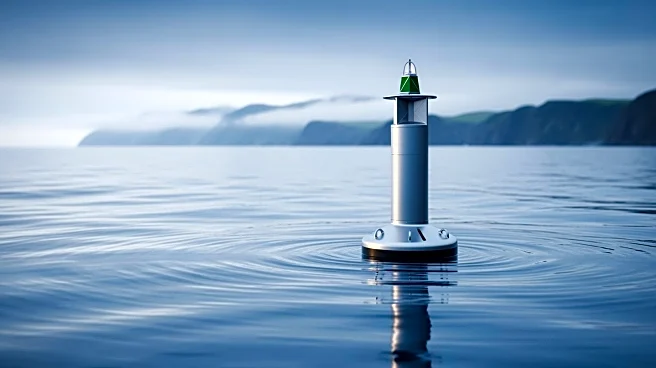What's Happening?
A group of volunteer scuba divers, known as Neptune’s Army of Rubbish Cleaners (NARC), discovered a Russian sonar buoy off the coast of Wales. The buoy, believed to be a Russian RGB-1A, was found in the Skomer
Marine Conservation Zone. Initially mistaken for a navigational marker, the device was identified as military acoustic equipment. The buoy, approximately 4 feet long and weighing 33 pounds, was retrieved and handed over to the UK Coastguard. Defense analysts suggest the buoy was likely deployed recently, as similar devices have been found in various locations, including the UK and Ireland. The Royal Navy has not commented on the specific discovery but emphasized its ongoing monitoring of UK waters.
Why It's Important?
The discovery of the Russian sonar buoy in Welsh waters highlights potential security threats and underscores the importance of monitoring foreign underwater activities. The presence of such devices could indicate increased Russian naval activity and surveillance efforts around the UK. This situation raises concerns about national security and the need for enhanced maritime vigilance. The incident also reflects broader geopolitical tensions, as the UK and its allies continue to track and respond to foreign military activities in their territorial waters. The discovery could lead to increased scrutiny and diplomatic discussions regarding maritime security and international relations.
What's Next?
The UK government and military are likely to continue monitoring and investigating the presence of foreign military equipment in their waters. This may involve increased collaboration with allied nations to enhance maritime security measures. The discovery could prompt discussions on strengthening international agreements and protocols to prevent unauthorized military activities in territorial waters. Additionally, the UK may consider deploying more resources to monitor and protect its maritime boundaries, ensuring the safety and security of its waters.











